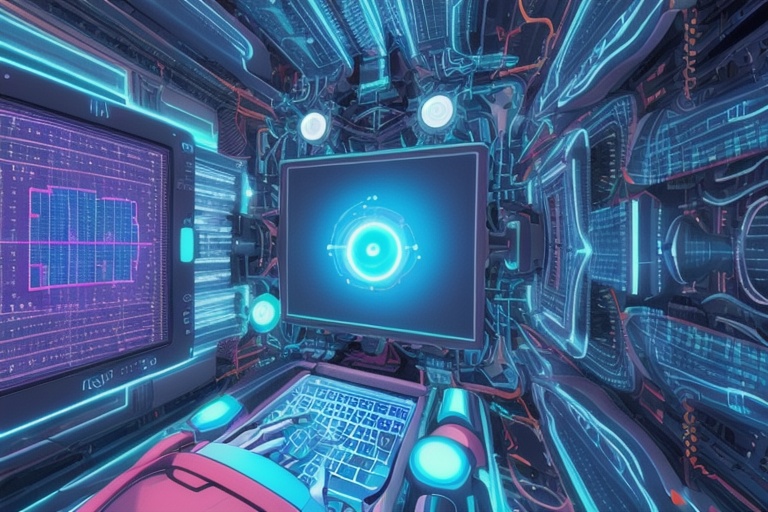The dawn of a new decade ushers in untold possibilities in the rapidly advancing field of artificial intelligence (AI). As technology pervades every aspect of our daily lives, we find ourselves at a pivotal moment in history where AI stands to revolutionize sectors ranging from healthcare and finance to transportation and communication. Understanding the multifaceted potential of AI, both its transformative benefits and its considerable ethical implications, is critical for society.
The dawn of a new decade ushers in untold possibilities in the rapidly advancing field of artificial intelligence (AI). As technology pervades every aspect of our daily lives, we find ourselves at a pivotal moment in history where AI stands to revolutionize sectors ranging from healthcare and finance to transportation and communication. Understanding the multifaceted potential of AI, both its transformative benefits and its considerable ethical implications, is critical for society.
Transforming Mobility: Self-Driving Cars
One of the most anticipated innovations in AI is the advent of self-driving cars. This groundbreaking technology proposes a future where travel is not only more efficient but also considerably safer. Self-driving vehicles aim to significantly lower the risk of accidents primarily caused by human error—think less traffic congestion and more time saved. As cities and countries adapt to these changes, we could witness a paradigm shift in how people and goods move from point A to point B.
Revolutionizing Healthcare with Personalized Medicine
AI's influence on healthcare is set to be nothing short of revolutionary. By harnessing the power of machine learning to analyze vast datasets, medical professionals can craft highly personalized treatment plans. These plans are tailored to the individual, taking into account unique genetic codes and lifestyle factors. AI could enable early diagnosis of diseases, swift analysis of medical scans, and even the discovery of new treatments, all culminating in more effective healthcare delivery at lower costs.
The Education and Entertainment Renaissance
Education stands on the brink of a renaissance as AI creates avenues for immersive learning experiences. Imagine virtual reality classrooms that transport students through time and space, making learning both engaging and interactive. Likewise, AI is poised to transform the entertainment industry with algorithms curating content so accurately that each user's experience is uniquely tailored to their preferences. These AI-powered experiences will not only entertain but educate, bridging the divide between the two realms seamlessly.
Navigating Ethical AI Employment
The excitement surrounding AI's capabilities, however, must be tempered with a cautious approach to ethical considerations. Robust measures will need to be instituted to ward against the misuse of AI and to ensure that the technology serves the greater good of humanity. Key to this is the protection of sensitive personal data through rigorous privacy and security protocols and methods. More so than ever, the development of AI applications will require transparency, preventing outcomes tainted by bias and discrimination.
Empowering Society Through AI Regulation
As AI increasingly influences our daily activities, it grows more important to establish clear guidelines and regulations that safeguard the rights and well-being of all individuals. These regulations must strike a delicate balance between promoting innovation and preventing potential social inequalities. Emphasizing human dignity and equity in an AI-driven future will be paramount to preventing divisiveness and displacement within society.
Perspective on the AI-Driven Future
Looking ahead, we can foresee significant strides in AI research aimed at achieving a level of general intelligence that rivals, or even surpasses, human intellect. This vision for the future includes not only the creation of advanced AI technologies but also the expansion of computational power to previously unimaginable heights. The implications for our day-to-day lives are vast, with potential shifts in consumer behavior, industry standards, and the very nature of the workplace.
As we embrace the AI revolution, new opportunities emerge for unparalleled productivity and efficiency gains. Yet, these advances bring forth necessary conversations about the socioeconomic impacts, such as job displacement and economic inequality. It is the collective responsibility of governments, businesses, and individuals to steer the AI revolution—mindful of the fine line between benefitting society and infringing on workers' rights, and economic fairness.
Conclusion: A Symbiotic AI Future
In summation, the journey toward an AI-integrated society is filled with optimism and caution. By consciously guiding the development and application of AI technologies, we can envision a future where AI not only coexists with human intelligence but also enhances it. As we charter the waters of this brave new world, it is our collective responsibility to ensure that AI serves as a catalyst for positive change, fostering a society where progress is both shared and sustained. Embracing the monumental potential of AI, while remaining vigilant of its risks, will undoubtedly define the era we are stepping into—an era wherein AI and humanity collaboratively shape a better tomorrow.
Information for this article was gathered from the following source.




